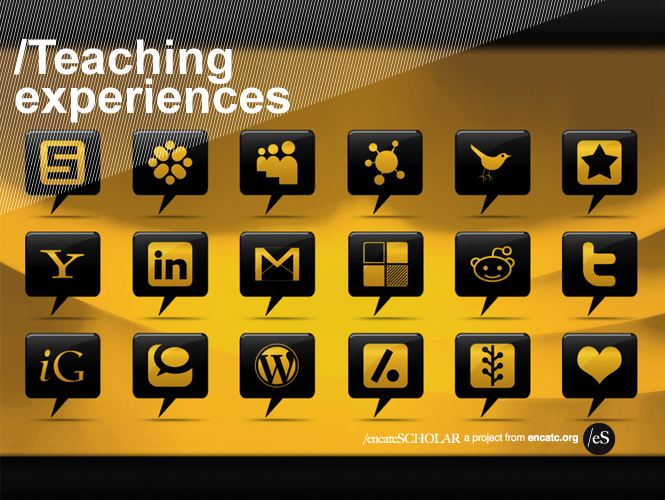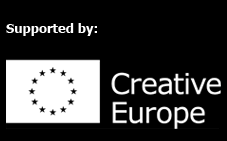Entrepreneurial and Social Media Experiments in Arts Management

By Lida Tsene, PhD
Teaching Associate, Department of Communication, Media and Culture, Panteion University/ MA Communication and Journalism, Open University of Cyprus
/Teaching experiences
Entrepreneurial and Social Media Experiments in Arts Management.
Couple of months ago I came across an interesting article by Anne-Maria Imafidon posted in Guardian’s Culture Professionals Network section. The article argued that arts organizations and thus cultural managers should adopt an entrepreneurial approach in order to survive (Imafidon, 2012). True or false?
We are living in an era where everything changes in a fast and sometimes in a furious way. Digital and social technology is shaping a new landscape and changes the way we produce, consume, think and innovate (Leadbeater, 2008). Sharing economy, co-creation and collaboration are becoming the new trends not only in the field of business, but as well as in the fields of politics and cultural production. Consumers are becoming prosumers (Toffler, 1980) and Generation C (Solis, 2012) has a major part in the process of co-creating shared value (Porter, 2011).
On the other hand, economic crisis pushes forward the need for a new paradigm shift in business, allowing the rise of a startup culture that drives from the business sector and expands to many aspects of human life. In addition, we are witnessing the rise of new ventures from young people combining new skills and developing creative solutions answering to the needs of the digital economy (Tsene, 2015).
Within this new environment cultural managers need to rethink the skills they have to develop in order to be able to respond to the current challenges. According to a research conducted via the interaction during an online course I co-ordinate under the title “Social Media and Arts Management” exploring the new skills an art manager should develop, the main skills of a cultural entrepreneur can be summarized to the following: passion and deep knowledge of the market of the creative industries, deep understanding of the socioeconomic context, in local and global level, in order to be able to offer the right solutions, creative thinking, vision for an improved society, risk taking, strong interpersonal and communication skills, technology and new media literacy, openness and collaboration, following with great accuracy all the global trends of the entrepreneurial mindset (Badal, 2012).
So, why arts managers need social media? And how are they going to use them? Why do they need to experiment with entrepreneurial schemes, and what does that mean?
Trying to answer the above questions, we will take it one step at the time. Why do they need social media? Because their audience is there and because they seem to spend more time there than even before. And how are they going to use them? Most of cultural organizations today use social media platforms to expand the number of online performances and exhibits, grow their audience, sell tickets, and raise funds online, while allowing patrons to share content, leave comments, and even post their own content on organizations’ sites (Thompson, Purcell, Rainie, 2013). But this can be taken further. Those platforms can be tools for creating experiences for both the audience and other stakeholders by producing and sharing interesting stories. Transmedia, interactive storytelling is becoming a strong marketing tool (Gottscall, 2012) as people, according to marketing guru Seth Godin are not buying products or services, rather than stories and relationships. In this context, arts managers not only should they post on facebook or twitter but they should become initiators and curators of unfolding stories told at the same time by them and their engaged audiences.
In addition, adopting a more transparent and collaborative behavior, they automatically touch the entrepreneurial culture that suggests openness, creativity, co-creation, disruption and no fear for experimentation and also change of business models. The great cut offs in public fundings and sponsorships should push arts managers to think more creatively about their sustainability. Technology and social networking can definitely help towards this direction. Crowdfunding platforms, content marketing, affiliate and mobile marketing are just some ideas.
We are standing before a great opportunity: social technologies provide us with tools and values (collaboration, transparency, creativity, sharing mindset) that might strengthen creative industries and contribute both to economic and intellectual capital growth. Arts managers around the world have the chance not only to take advantage of the collective intelligence, but also to listen and understand better their audiences and to engage with them in a more effective way. At the same time, they can start easier their own companies, promote more effective and quick their products and services, share and exchange knowledge, build their personal brand, communicate and travel, physically and digitally, all over the world, work on projects on the go. Digital and new media literacy, but most importantly understanding of the new digital culture is essential for an art professional in order to stay relevant and become innovative. The challenges and opportunities are numerous and arise new questions and surely, a creative dialogue:
Questions for further discussion
1. How can art managers engage more efficiently with their audiences? 2. What are the skills they need to develop? 3. Is there a need for educational programs that foster cultural entrepreneurship?
References
Badal S., (2012), [online]. The Behavioral Traits of A Successful Entrepreneur. Forbes, accessible at http://www.forbes.com/sites/groupthink/2012/06/04/the-behavioral-traits-of-a-successful-entrepreneur/ [accessed April 30, 2015].
Gottschall, J. (2012). The Storytelling Animal: How Stories Make Us Human. Houghton Mifflin
Imafidon, A.M, (2012) [online]. Why arts organisations should act more like startups. Guardian, accessible at http://www.theguardian.com/culture-professionals-network/culture-professionals-blog/2012/apr/11/arts-organisations-act-startups [accessed April 30, 2015].
Leadbeater C., Oakley K. (1999),. The Independents: Britain’s new cultural entrepreneur. Demos
Leadbeater C. (2008), We Think. Profile Books
Porter E.M., Kramer, M.R. (2011). Creating Shared Value. Harvard Business Review, issue Jan-Feb 2011.
Solis, B. (2012), [online]. Meet Generation C: The connected customer. Accessible at http://www.briansolis.com/2012/04/meet-generation-c-the-connected-customer/ [accessed April 30, 2015]
Thompson, K., Purcell, K., Rainie, L. [online]. Arts organizations and digital technologies. Pew Research Center. Accessible at http://www.pewinternet.org/2013/01/04/arts-organizations-and-digital-technologies/ [accessed April 30, 2015]
Tofler, A. (1980). The third wave. Bantam
Towse, R. (2003). A Handbook of Cultural Economics. Edward Elgar
Tsene, L. (2015). Cultural Entrepeneurship and Cultural Startups: The Case of Greece. Rethinking Education. Empoewring Individuals with the Approproate Educational Tools, Skills and Competencies for their Active Cultural, Piolitical and Economic Participation in Society in Europe and Beyond. Access to the Culture Platform
Author: Lida Tsene holds a PhD on social media and social responsibility from Panteion University, Department of Communication, Media and Culture. She is Researcher and Teaching Associate at the same Department and she is also collaborating with the other academic institutions. Her research interests apply to the fields of social media, digital economy, media responsibility, transmedia storytelling, entrepreneurship, cultural management and comics. She has been working in the field of communication since 2006 and she is Public Relations, Art and Educational Director of Comicdom Press and Founder of Athens Comics Library. She is co-organizing Athens Startup Weekend University and Athens Startup Weekend Education. Her book entitled “From media crisis to social media. A new paradigm of social responsibility” has been published in 2012.
Header image: webtreats on Flickr (108 Glossy Black Comment Bubble Social Media Icons)




